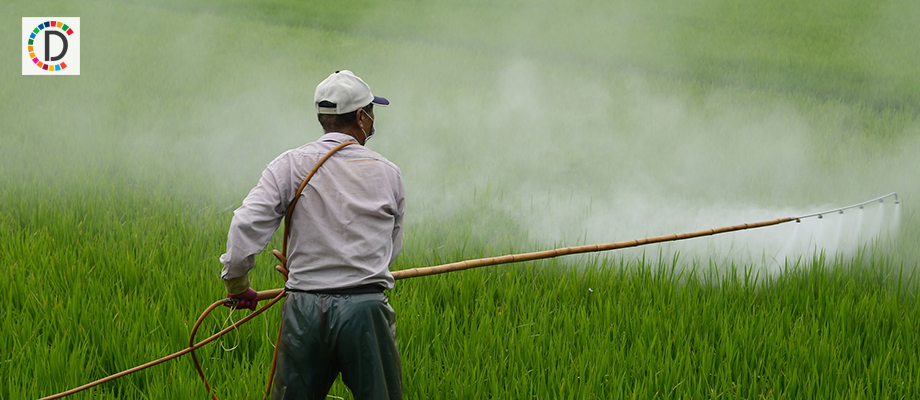Kyiv acts on 'compromise' plan after filing WTO trade complaint over food ban
Ukraine appealed to three neighbouring countries in the European Union on Tuesday to embark on "constructive dialogue" to end a dispute over agricultural trade, and approved what it called a "compromise scenario." Poland, Slovakia and Hungary announced restrictions on imports from Ukraine on Friday after the European Commission decided not to extend a ban on sales into Ukraine's five EU neighbours, which also include Romania and Bulgaria. The Polish, Slovak and Hungarian governments said their actions sought to protect farmers from a surge of grain and food imports from Ukraine since its invasion by Russia last year.

Ukraine appealed to three neighbouring countries in the European Union on Tuesday to embark on "constructive dialogue" to end a dispute over agricultural trade, and approved what it called a "compromise scenario." Poland, Slovakia and Hungary announced restrictions on imports from Ukraine on Friday after the European Commission decided not to extend a ban on sales into Ukraine's five EU neighbours, which also include Romania and Bulgaria.
The Polish, Slovak and Hungarian governments said their actions sought to protect farmers from a surge of grain and food imports from Ukraine since its invasion by Russia last year. A World Trade Organization spokesperson confirmed that Ukraine had taken the first step in a trade dispute by filing a complaint to the global trade body.
"We can confirm that a request for consultations was received Monday evening. Further information will be provided once the request has been circulated to our members," the spokesperson said in an email addressed to Reuters. He did not name the countries although Kyiv had previously said the complaint targeted Poland, Slovakia and Hungary.
Ukrainian Prime Minister Denys Shmyhal later spelled out Kyiv's position in comments on the Telegram messaging app. He confirmed that Kyiv would impose retaliatory import restrictions on certain categories of goods from Poland and Hungary if they did not lift their unilateral bans. Ukraine, meanwhile, is conducting an investigation to show that the unilateral bans are discriminatory, he said.
Shmyhal said Kyiv had proposed to the European Commission, the EU executive, and neighboring countries an export control plan on four groups of farm products to prevent market distortions -- a plan he described as a compromise scenario. "We once again call on our neighbours to abandon harmful and illegal restrictions, political populism and embark on the path of constructive dialogue, from which everyone will actually benefit," he said.
HELPING THE WORLD President Volodymyr Zelenskiy, who is attending U.N. meetings in New York, said he told the Sustainable Development Goals summit that Ukraine's exports were "helping the world be more stable and stronger".
Polish President Andrzej Duda, also in New York, told reporters: "It would be good for Ukraine to remember that it receives help from us and to remember that we are also a transit country to Ukraine." Ukraine's Trade Representative, Taras Kachka, told national television that Kyiv strictly sought the removal of the bans.
"We want to see Polish farmers develop, we want to see Ukrainian farmers develop...Each has their own situation and a great many problems," Kachka said. "Poland banned imports. So you have to understand our actions are a reaction. We have been in talks with them for half a year in different situations."
Signalling its intention to move forward with the compromise proposal on Tuesday, the Ukrainian government approved the introduction of export licences for a number of agricultural products for export to Ukraine's five EU neighbours. "The government of Ukraine approved a new procedure for exporting certain types of products to certain EU member states," the agriculture ministry said in a statement.
"It stipulates that four crops -- corn, rapeseed, sunflower seed, wheat, which are exported to 5 countries -- must be licensed by the economy ministry in agreement with agriculture ministry." The ministry said Kyiv would agree on the list and volume of products with importing countries, which would determine whether they are ready to accept these goods.
"Only then do we issue permits to our companies to export certain products. Ukraine controls its exports and coordinates them with the receiving countries," it added. Russia's war on Ukraine has disrupted Kyiv's ability to export farm products through its ports, leading to a surge in shipments via road, rail and barge through its five neighbours. (Additional tporting by Emma Farge and Gabrielle Tetrault-Farber in Geneva, and by Anna Pruchnicka, Editing by Timothy Heritage, William Maclean, Ron Popeski and David Gregorio)
(This story has not been edited by Devdiscourse staff and is auto-generated from a syndicated feed.)










